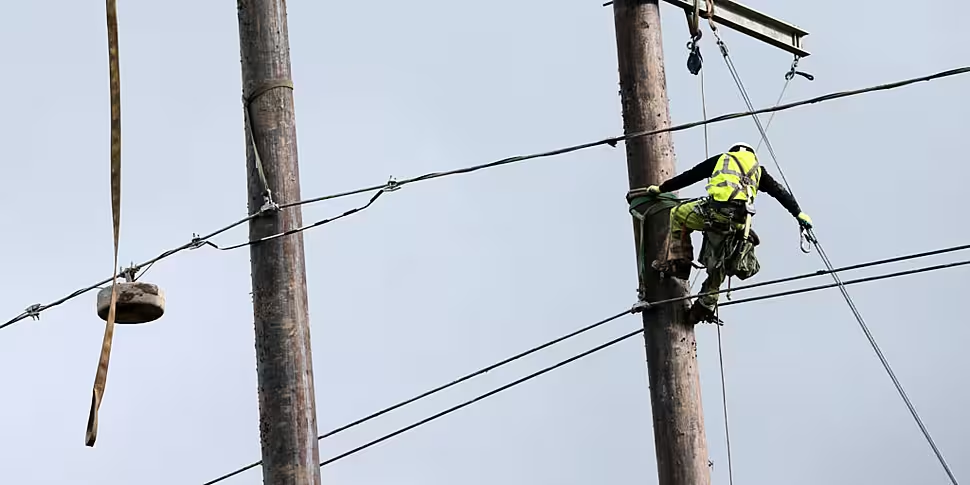ESB Networks’ plans to upgrade the electricity system over the coming years have suffered a setback.
The semi-state body sought permission to spend €3.1bn between 2021 and 2025 to cater for increased usage of electric cars, more electric home heating, and connecting more renewables to the grid.
However the Commission for Regulation of Utilities (CRU) is proposing to allow a €2.5bn spend, saying it needs more evidence justifying the need for the higher sum if it is to allow it.
Part of ESB Networks' revenue comes from a levy on customer’s bills, with the organisation having previously told Newstalk its upgrade proposals would have led to an increase of around €10 a year for an average customer.
That increase may now be lower, given the CRU’s initial rejection of the planned spending.
ESB Networks is one of two operators of Ireland’s electricity system: Eirgrid manages the grid at a macro level, while ESB then manages the lines that shoot off the larger grid up to homes and businesses.
Both bodies face an enormous challenge with Ireland’s electricity demand set to increase substantially.
More electric cars will increase the load on the system as drivers charge their cars at home.
Changes in home heating will also have an impact as electric heat pumps replace fossil fuels.
In recent months, COVID-19 has also posed challenges as people’s electricity consumption habits changed dramatically, as discussed in a recent episode of Newstalk's Future of Work podcast.
It means greater loads on the system in different areas than usual.
Clare Duffy, network development and electrification manager at ESB Networks, told Future of Work that at the peak of the lockdown in mid-April, Irish electricity usage was down 12%.
The drop was driven by reduced usage in the SME sector with many premises closed, although this was partially offset by a 12% increase in domestic usage as people spent more time from home.
Changes in usage patterns have also been evident.
Ms Duffy said: “We’ve seen that morning peak, that fast ramp-up we’d get when everyone was getting up in and around the same time…that’s actually spread out, it’s flattened because people are spreading breakfast over a longer period."
However, she said the impact of COVID-19 was unlikely to alter their plans for investment and reinforcement.
For more on ESB Networks’ view of Ireland’s electricity future, listen to Episode 6 of Future of Work on connectivity.









